Filter by
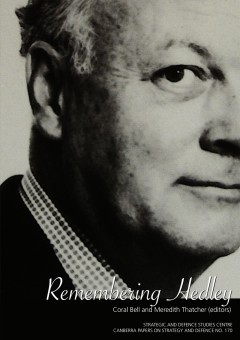
Remembering Hedley
Remembering Hedley commemorates the life of Hedley Bull (1932–85), a pivotal figure in the fields of international relations and strategic studies. Its publication coincides with the official opening on 6 August 2008 of the Hedley Bull Centre at The Australian National University in Canberra.
- Edition
- -
- ISBN/ISSN
- 9781921536076
- Collation
- -
- Series Title
- -
- Call Number
- 900 REM
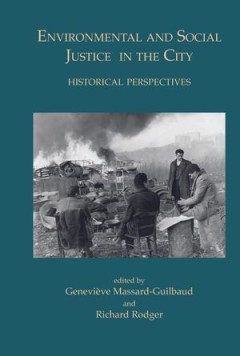
Environmental and Social Justice in the City: Historical Perspectives
The world is full of environmental injustices and inequalities, yet few European historians have tackled these subjects head on; nor have they explored their relationships with social inequalities. In this innovative collection of historical essays the contributors consider a range of past environmental injustices, spanning seven northern and western European countries and with several chapters…
- Edition
- -
- ISBN/ISSN
- 9781874267614
- Collation
- -
- Series Title
- -
- Call Number
- 808.4 ENV e
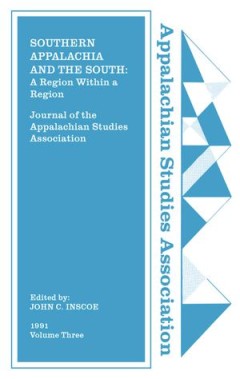
Southern Appalachia and the South: A Region Within a Region - Volume Three
This volume of the Journal of the Appalachian Studies Association explores the intersections between Southerners and Southern Appalachians and the theoretical and practical implication of regional identity, marginality, ethnic commonalities, and comparative perspectives during the 19th and 20th centuries.
- Edition
- -
- ISBN/ISSN
- 9781469636986
- Collation
- -
- Series Title
- -
- Call Number
- 808.84 INS s
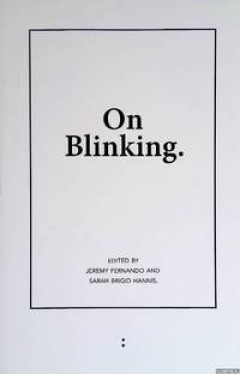
On Blinking
On Blinking opens a dossier on seeing. It looks not only to the epistemological sense of what it means to see or the hermeneutical sense of what is the meaning of that which is seen but attends to various sites of knowledge – photography, literature, and philosophy. And in doing so, it questions the privileging of presence and sight in Western thought. Thus, this book, through the essays – …
- Edition
- -
- ISBN/ISSN
- 9789081709163
- Collation
- 174
- Series Title
- -
- Call Number
- Literary essays

Environmental and Social Justice in the City : Historical Perspectives
The world is full of environmental injustices and inequalities, yet few European historians have tackled these subjects head on; nor have they explored their relationships with social inequalities. In this innovative collection of historical essays the contributors consider a range of past environmental injustices, spanning seven northern and western European countries and with several chapters…
- Edition
- -
- ISBN/ISSN
- 9781874267614
- Collation
- -
- Series Title
- -
- Call Number
- -
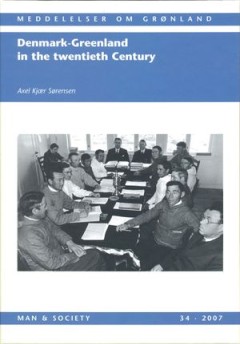
Denmark-Greenland in the twentieth century (Vol. 341)
This book traces Danish-Greenlandic relations over 100 years and is the first publication to cover the period 1900-2000. The main trend is the development from a colonial situation in 1900 with a state owned company runnig nearly all business to an open economy with steadily growing selfgovernment for Greenland short of full independence. The Danish policy can be described as benevolent, but fi…
- Edition
- -
- ISBN/ISSN
- 9788763530705
- Collation
- -
- Series Title
- -
- Call Number
- 320 SOR d
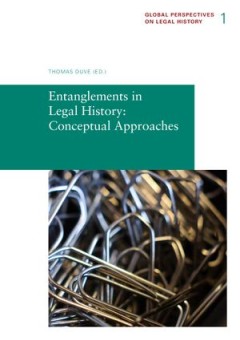
Entanglements in Legal History : Conceptual Approaches
Legal History presents a broad panorama of historical processes that trigger theoretical reflections on legal transfers and legal transplants and on the problem of the reception and assimilation laws and other modes of normativity. In this volume, legal historians across the globe reflect on their analytical traditions and present case studies in order to discuss how entangled histories of law …
- Edition
- -
- ISBN/ISSN
- 9783944773001
- Collation
- 576 halaman
- Series Title
- Global Perspectives on Legal History vol. 1
- Call Number
- 340 ENT
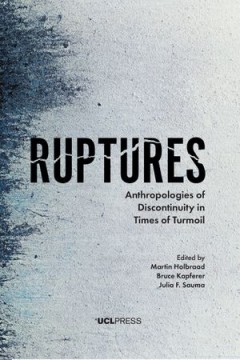
Ruptures
Ruptures brings together leading and emerging international anthropologists to explore the concept of ‘rupture’. Understood as radical and often forceful forms of discontinuity, rupture is the active ingredient of the current sense of a world in turmoil, lying at the heart of some of the most defining experiences of our time: the rise of populist politics, the corollary impulse towards prot…
- Edition
- -
- ISBN/ISSN
- 9781787356184
- Collation
- -
- Series Title
- -
- Call Number
- 808.84 RUP r
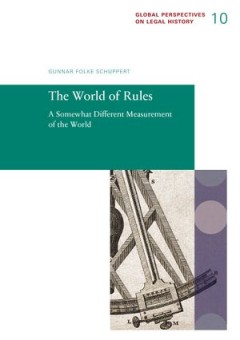
The World of Rules : A Somewhat Different Measurement of the World
"This book takes a stand against the narrowing focus of (German) jurisprudence on state law, rooted in the history of the territorially organised nation state. In the shadow of this tradition, state(-hood) law was only conceived of as state law. However, a gradual decoupling of state and law is observable – not least because of globalisation – which inevitably entails a pluralisation of leg…
- Edition
- -
- ISBN/ISSN
- 9783944773094
- Collation
- 374 halaman
- Series Title
- Global Perspectives on Legal History vol. 10
- Call Number
- 340 SCH w

Humid, All Too Humid : Overheated Observations
I haven’t made a single mistake in my life. I’ve just made a lot of good decisions that went really badly. Try as we might, we simply can’t imagine what our world would now look like, had our forefathers decided to use asparagus instead of electricity. In Humid, All Too Humid, social commentator Dominic Pettman curates the overheated thoughts of his own feverish mind, in response to a wor…
- Edition
- -
- ISBN/ISSN
- 9780692650141
- Collation
- 182
- Series Title
- -
- Call Number
- 800 PT h
 Computer Science, Information & General Works
Computer Science, Information & General Works  Philosophy & Psychology
Philosophy & Psychology  Religion
Religion  Social Sciences
Social Sciences  Language
Language  Pure Science
Pure Science  Applied Sciences
Applied Sciences  Art & Recreation
Art & Recreation  Literature
Literature  History & Geography
History & Geography